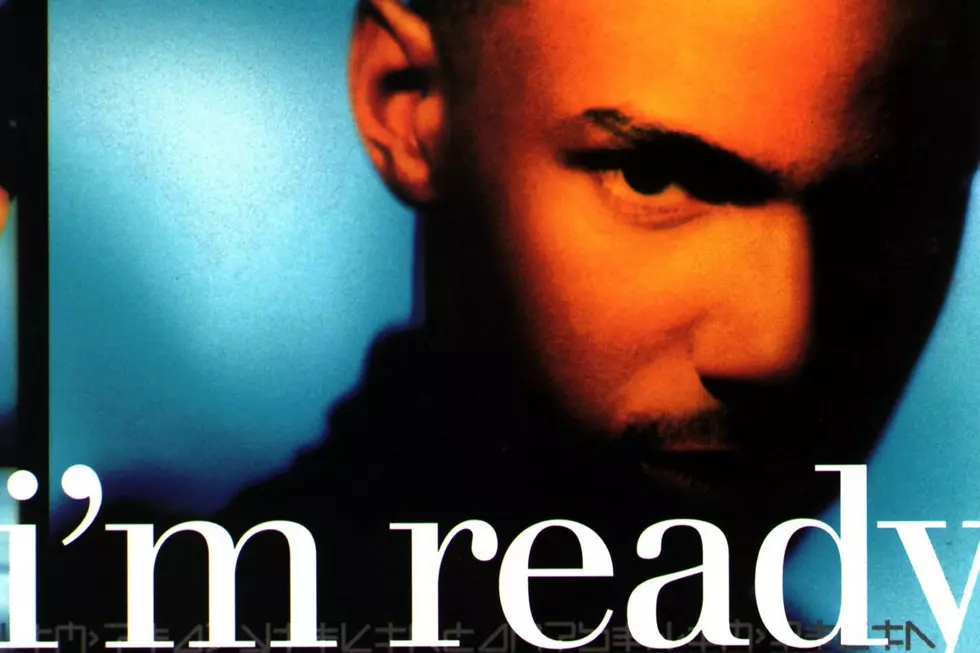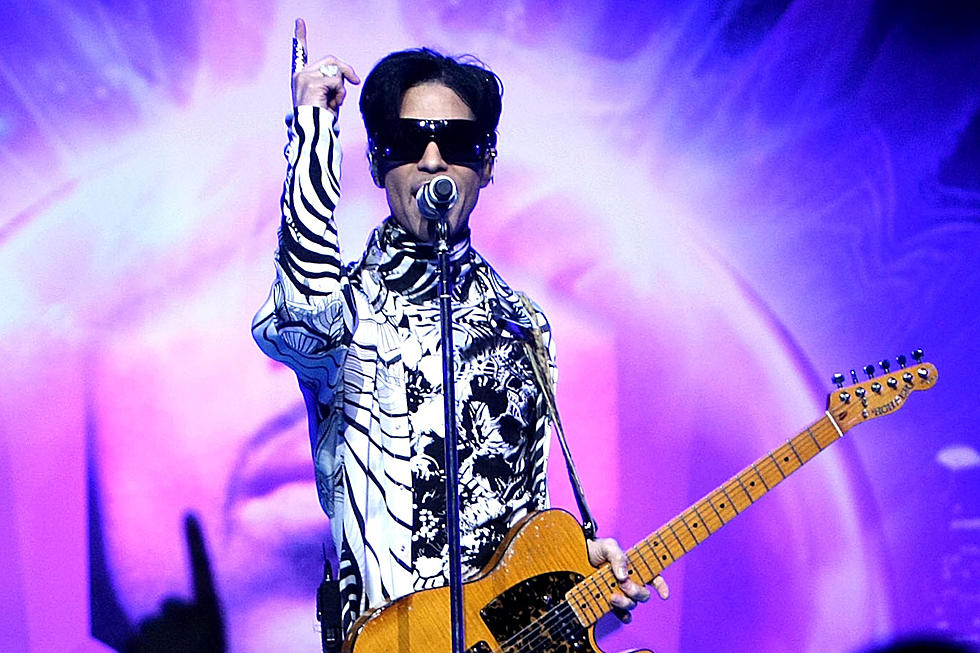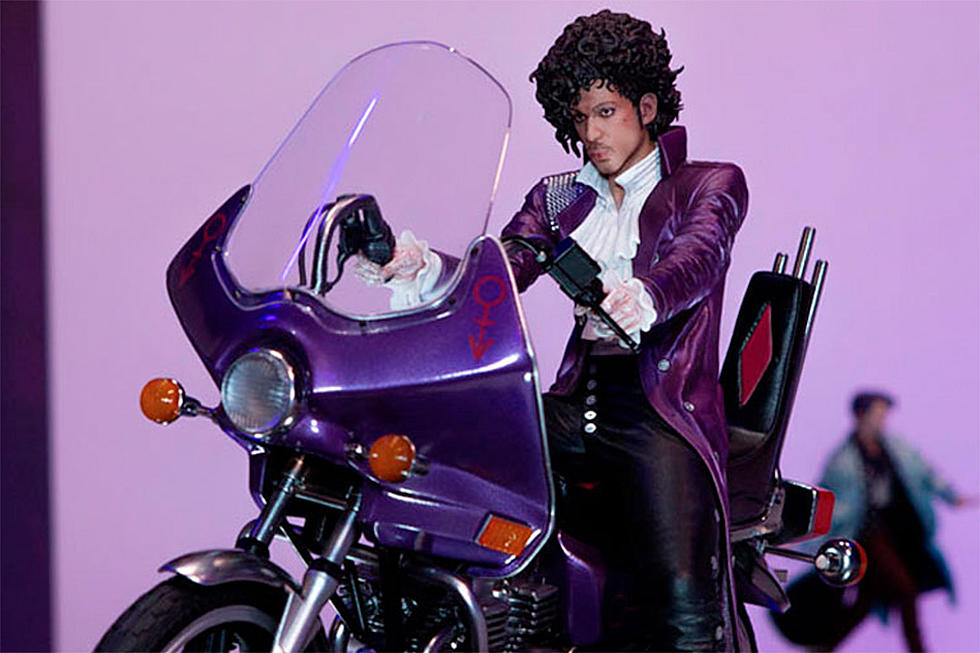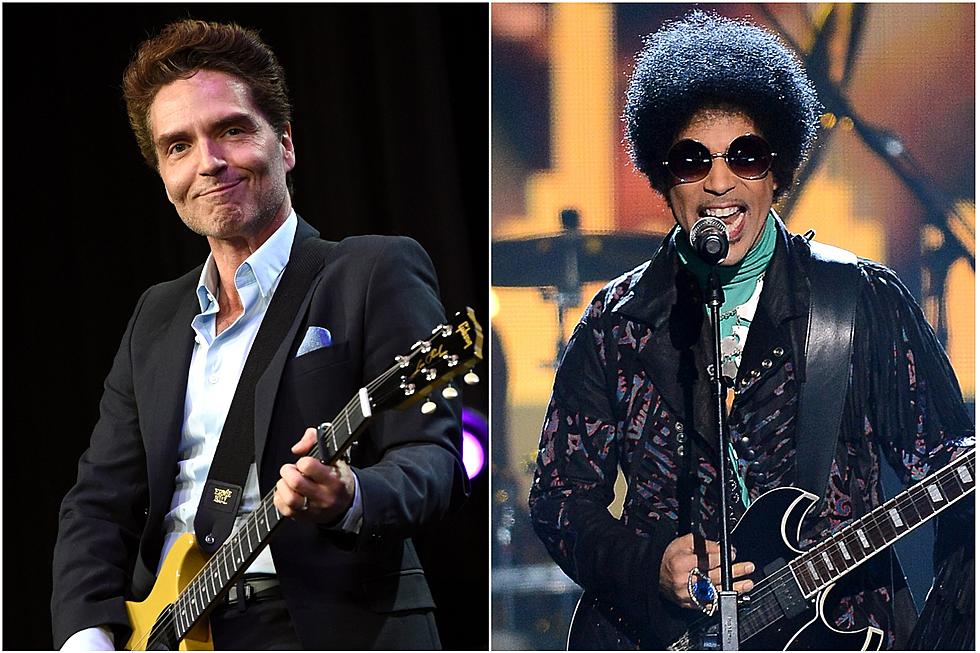
How Prince Helped Tevin Campbell Get Political on ‘I’m Ready’
Growing up in Waxahachie, Texas, R&B singer Tevin Campbell experienced his fair share of racism.
In a 1994 interview with Vibe magazine, he spoke about the segregated communities that were forced to converge at his school, where he’d often hear racial slurs.
Even after he became a famous singer with multiple hits under his belt, the experience stayed with him, so much so that he enlisted a superstar to help express his frustration. “I asked Prince to write about how the African American male is viewed in American society,” the then-18-year-old Campbell told Vibe.
The song was “Uncle Sam,” one of four tracks Prince contributed to Campbell’s second album, I’m Ready, released on Oct. 26, 1993. The up-tempo track featured a looped sample of Eric Leeds’ saxophone line from “The Dopamine Rush.” Campbell sang about being Uncle Sam’s “illegitimate nephew,” serving in wars and working hard in school, only to be treated like a second-class citizen.
The subject matter was not out of place for Prince, who was addressing similar themes on his own songs, including “The Sacrifice of Victor,” “Race” and “We March,” in the early and mid-90s.
Both Warner Bros. artists, Prince and Campbell had already cultivated a working relationship. Campbell achieved a No. 3 hit with the Prince-penned “Round and Round” in 1990, and co-starred in Prince’s Graffiti Bridge film.
“You are a superstar,” Campbell wrote in the liner notes of his debut album, T.E.V.I.N., which was released in 1991 and included a remix of “Round and Round.” “It was MAGNIFICENT working with you,” Campbell continued.
When Prince and Campbell teamed up again for I’m Ready, “Uncle Sam” was not the only politically charged collaboration. “Paris 1798430” was a haunting, horn-drenched depiction of inequality in America for African Americans.
In the track's lyrics, Campbell has resigned himself to life abroad. The title references a French phone number, which typically includes eight digits. According to Prince Vault, the song was originally recorded and copyrighted as “Paris 17984302.” Prince’s longtime fascination with the number seven may have prompted him to remove the last digit. Or, perhaps he’d learned his lesson from “777-9311” a decade earlier and decided to prevent unwanted calls.
For his other I’m Ready tracks, Prince turned his focus back to the bedroom. The slow-burning top ten R&B hit “Shhh” is probably the second most well-known Prince composition in Campbell’s repertoire, following “Round and Round.”
Though the “The Halls of Desire” is a peppy, saccharine pop tune, it’s similarly naughty. In the lyrics, Prince created an imaginary hallway of doors mirrored the sexual progression. A hug was behind the first door, and “a slow, sexy grind” awaited Campbell’s love interest beyond the third door. The fifth door involved some steamier activity, and, for some reason, the sixth door should be skipped.
Unsurprisingly, Prince saved the best prize for door number seven, though “no one really knows” what happens inside. Because it’s Prince, it could be a walk into the afterlife or an experience of sexual ecstasy.
All of Prince’s contributions on I’m Ready were credited to “Paisley Park," a pseudonym the Purple One was using for himself at the time. He also wanted to apply the alias to other personnel, according to engineer Michael Koppelman, who worked for Prince in the early ‘90s.
“There was one point where he wanted to credit all the producers as Paisley Park on records,” he said. “I think he thought that if this growing group of people could all cooperate as Paisley Park, it would be a great thing.”
Campbell had hoped Prince would produce an entire album for him, but it never panned out. Quincy Jones, the executive producer of both T.E.V.I.N. and I’m Ready, insisted Campbell work with a myriad of people “to explore several directions and maximize his potential,” according to a Los Angeles Times article.
The most successful songs on I'm Ready —“Can We Talk,” “Always in My Heart” and the title track— were contributed by Kenneth “Babyface” Edmonds and Darry Simmons. One wonders if a full, Prince-produced album would have garnered the same commercial reception for Campbell.
But given the singer's requests for serious subject matter from Prince, artistic achievements may have been more important — a conclusion Campbell hinted at in the Los Angeles Times piece.
“He brings out the best in me,” he said.
What Happened to the Artists of Paisley Park Records?
More From KSSM-FM










